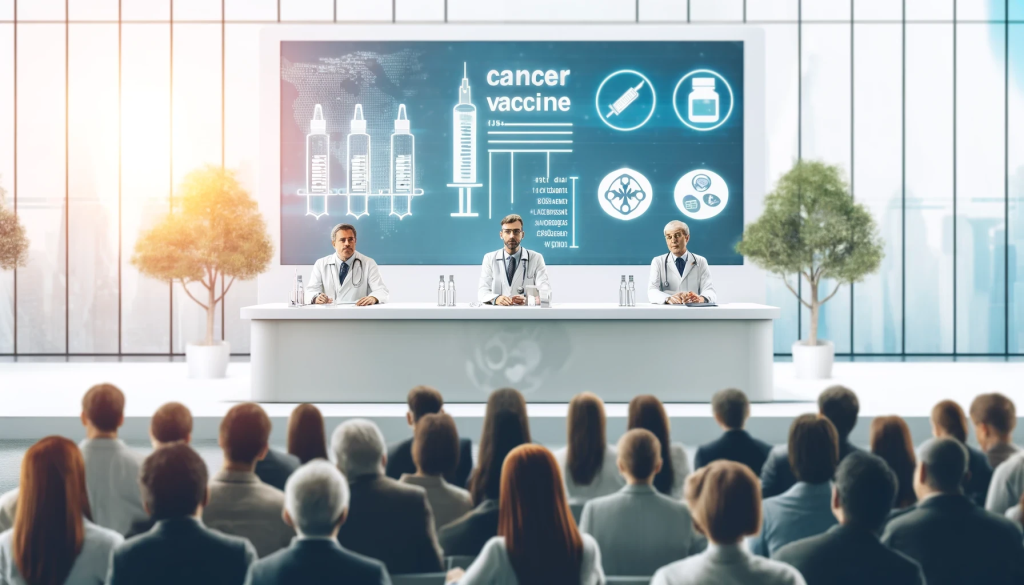Recent announcements from the Russian government about the development of a cancer vaccine have stirred discussions both in the scientific community and among the general public. According to official statements, the vaccine is expected to enter mass production by early 2025, which authorities have described as a “discovery of the century.” However, amid these ambitious claims, skepticism grows internationally. What does this mean for medicine and society? Let’s delve into the issue by analyzing the medical, scientific, and political dimensions.
What is Cancer and Why is it Difficult to Treat?
Cancer is not a single disease but rather a group of illnesses characterized by uncontrolled cell division and the ability to metastasize to other organs. There are over 100 types of cancer, each requiring an individual approach to treatment.
The challenges of treating cancer arise from the following factors:
- Genetic diversity of tumors. Cancer cells constantly mutate, making them resistant to treatment.
- Late diagnosis. Most cases of cancer are detected at advanced stages, making treatment more difficult.
- Systemic effects. Tumors can suppress the immune response, leaving the body vulnerable.
What is Meant by a Cancer Vaccine?
When we hear the term “vaccine,” we usually think of a medication that prevents disease. However, in the case of cancer, vaccines are divided into two types:
- Preventive vaccines. For example, the human papillomavirus (HPV) vaccine, which prevents the development of cervical cancer.
- Therapeutic vaccines. These medications are designed to treat existing cancer by stimulating the immune system to attack cancer cells.
The Latest News: What Has the Russian Government Announced?

In December 2024, Russia’s Ministry of Health officially announced the creation of a vaccine aimed at treating certain forms of cancer. According to government representatives, the vaccine has already undergone preliminary clinical trials, reportedly showing promising results. Specifically, the vaccine is said to have demonstrated significant tumor reduction in patients diagnosed with:
- Lung cancer.
- Melanoma.
- Breast cancer.
Key Points from the Russian Government:
- Vaccine production is scheduled to begin in early 2025.
- The vaccine will be made available to Russian citizens and select partner countries as part of international cooperation.
- The government envisions the vaccine as part of a “potentially widespread program” targeting patients with advanced-stage cancers.
Why Are These Claims Questionable?
Despite the ambitious nature of the announcement, several factors raise doubts about the credibility of these claims.
1. Lack of Scientific Verification
- As of now, the results of the clinical trials have not been published in internationally peer-reviewed journals such as The Lancet or JAMA Oncology. This lack of transparency makes it difficult for the scientific community to independently evaluate the findings.
- The absence of publicly available data undermines the ability to assess the vaccine’s efficacy and safety.
2. Clinical Trials
- The Russian government claims that clinical trials have already been completed. However, the scale of these trials remains unclear—how many patients participated, and what were the specific outcomes?
- Typically, such trials take years to complete and involve three critical phases, each of which must be validated by independent experts.
3. Political Context
Amid the ongoing conflict with Ukraine and international sanctions, Russia faces global isolation. Some analysts argue that announcements of this nature may serve as a political strategy to bolster the country’s international reputation and divert attention from domestic issues.
International Reaction to Russia’s Claims
The global scientific community has reacted to the announcement with cautious skepticism. Experts emphasize that developing a universal cancer vaccine requires:
- Decades of research.
- Extensive clinical trials.
- Large-scale international collaboration.
Perspectives from Global Experts:
- Dr. Emma Fields, a leading oncologist from the UK: “Claims of completing clinical trials in such a short time are highly questionable. Developing a cancer vaccine is a complex process that requires rigorous validation.”
- Professor Jonathan Harris from Harvard University: “Scientific breakthroughs demand transparency. Until we see publications in reputable journals, it’s too early to take such claims at face value.”
Possible Scenarios: What to Expect in 2025?

- Optimistic Scenario If the vaccine proves to be effective and safe, it could revolutionize oncology. Its production in 2025 would allow Russian medicine to regain some international trust and contribute significantly to the fight against cancer.
- Pessimistic Scenario If the vaccine turns out to be underdeveloped or its efficacy is exaggerated, it could undermine trust in Russian science. Additionally, a failed project could have negative implications for patients pinning their hopes on this treatment.
- Realistic Scenario The scientific community will demand independent data to confirm or refute Russia’s claims. Even with positive results, integrating the vaccine into global medical practice could take decades.
Cancer and Vaccine Statistics: A Reality Check
| Indicator | Statistics | Source of Information |
|---|---|---|
| Annual global cancer cases | 19.3 million new cases | Global Cancer Observatory (GLOBOCAN), 2020 |
| Annual cancer-related deaths worldwide | 10 million deaths | World Health Organization (WHO), 2021 |
| Time required to develop cancer vaccines | On average, 10–15 years | Journal of Cancer Research and Clinical Oncology |
| Percentage of cancer patients participating in clinical trials | Less than 5% | American Cancer Society (ACS), 2022 |
| Average efficacy of current cancer vaccines | Between 30% and 90%, depending on the type of cancer | Centers for Disease Control and Prevention (CDC), 2021 |
What Does This Mean for Patients?
Key Recommendations:
- Avoid Rushed Decisions. Any new treatment method must undergo thorough safety and efficacy testing.
- Follow Published Data. Official clinical trial results should be available in authoritative scientific publications.
- Consult Healthcare Professionals. If offered a new treatment, always discuss the risks and benefits with qualified specialists.
Conclusion
Russia’s claims about creating a cancer vaccine undoubtedly draw attention. However, until these claims are substantiated, they should be approached with caution. Scientific breakthroughs require transparency, independent verification, and time. If the vaccine is genuinely effective, it could revolutionize medicine. However, if this is merely a political tool, it risks damaging trust in Russian science. Either way, 2025 will reveal whether Russia can deliver on its promises.
Sources of Information
- Global Cancer Observatory (GLOBOCAN), 2020 – Statistics on global cancer incidence and mortality.
- World Health Organization (WHO), 2021 – Global cancer-related mortality rates.
- National Cancer Institute (NCI), 2021 – Information on cancer prevention and vaccines.
- Journal of Cancer Research and Clinical Oncology – Data on vaccine development timelines and challenges.
- Centers for Disease Control and Prevention (CDC), 2021 – Insights into HPV vaccines and their effectiveness.
- American Cancer Society (ACS), 2022 – Statistics on clinical trial participation among cancer patients.
- The Lancet – Peer-reviewed journal for global health and cancer research.
- JAMA Oncology – Resource for clinical oncology research and expert opinions.
- Harvard Medical School Insights – Expert opinions on cancer research and international scientific standards.
- ClinicalTrials.gov – Database of clinical trials worldwide, including cancer-related studies.
- Ministry of Health of the Russian Federation – Official statements about vaccine development.
- Nature Medicine – High-impact journal publishing cutting-edge medical research.

















Pingback: 13 Powerful Reasons You Must Vaccinate: Uncovering the Truth About Mandatory Shots and the Shocking Secrets of Anti-Vaccine Movements - Medhouse.info
Pingback: Game-Changer in Pain Management: FDA Greenlights Journavx, a Non-Opioid Breakthrough - Medhouse.info